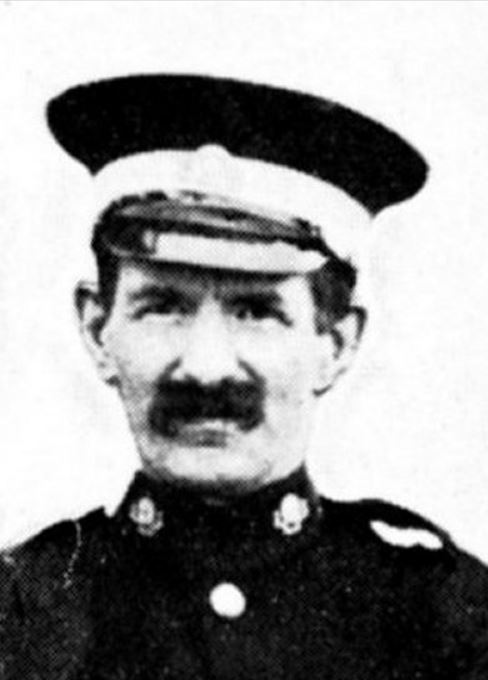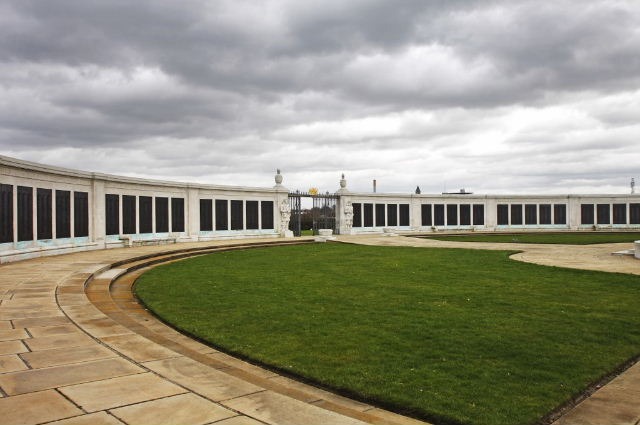Name
Frank Dunkley
31 July 1877
Conflict
First World War
Date of Death / Age
30/10/1914
38
Rank, Service Number & Service Details
Junior Reserve Attendant
M/10073
Royal Naval Auxiliary Sick Berth Reserve
H.M.H.S. Rohilla
Awards: Service Medals/Honour Awards
1914 /15 Star, British War and Victory medals
Cemetery/Memorial: Name/Reference/Country
CHATHAM NAVAL MEMORIAL
8
United Kingdom
Headstone Inscription
N/A
UK & Other Memorials
Barnet memorials not yet fully researched(*1),
Not on the East Barnet memorials,
Barnoldswick, Yorkshire
Pre War
Frank Dunkley was born in East Barnet, Herts on 31 July 1877, the son of Thomas and Elizabeth Dunkley.
On the 1881 Census he was living with his widowed mother, sisters Mary and Ruth and brother Abraham in Lancaster Road, East Barnet when his mother was working for a medical rubber manufacturer.
He married Mary Ellen Hudson in Bolton in 1900 and on the 1901 Census they were living at 341 Bury Road, Bolton, Lancs. They had a daughter Keziah born in July 1901.
By 1911 they had moved to Barnoldswick, Yorks and were living at 24 Rook Street and later at 9 Bairstow Street.
He was working as a Baker on enlistment and living at 19 Glasgow Street, Barnoldswick and was a member of the local branch of the St John Ambulance Association.
Wartime Service
He enlisted on 21 August 1914 and served with the Royal Naval Reserve as an Auxiliary Sick Berth Attendant (Junior Reserve Attendant) on HMS Rohilla (a hospital ship). Several other men from the Barnoldswick branch of the St John Ambulance Brigade were also on board the same ship.
The Glasgow steamer Rohilla was on her way from Scapa Flow after training and had left Scotland on 30 October bound for Dunkirk, but violent storms with a north-easterly gale had thrown the passenger steamer off course and towards the shore. The captain believed he was miles from the Yorkshire coast but he was in fact a few miles from Whitby and near a 400 yard reef called Saltwick Nab. There were no navigation lights on shore because of the war so the captain wasn't aware of the danger. A sentry on the pier head at Whitby saw the large vessel loom up out the darkness and pass within a few yards of the pier. She was also seen by a Coastguard who tried to attract her attention but failed as she struck the rocks with a grinding crash. The ship hit the reef stern first, killing most the people in that section of the ship. Those left on the rest of the wreck were stranded as it broke up over the course of three days.
Rockets were launched from shore but were unable to secure a line to the ship because of the raging storm and the RNLI had to wait until dawn before sending out a rowing boat. They rescued 35 of the 229 on board in two trips. One of which was Mary Roberts from Liverpool, she was a stewardess who had survived the sinking of the Titanic 2 years before.
Neighbouring lifeboats were called to help but stormy conditions prevented their use. Many of those left on Rohilla became desperate and jumped into the sea, and the people of Whitby made a human chain and waded into the shallows to help those who made it to shore, but many were overwhelmed by the extreme weather and few made it to shore, some beaten black and blue by their ordeal.
Despite valiant efforts to attempt the launch of lifeboats in the gale force winds and raging seas it was not until the motor lifeboat from Tynemouth came the next day and the storm had calmed sufficiently, that they were able to reach the remaining 50 survivors, which included the captain who had the ship's black cat tucked under his arm.
Frank is named on the Rohilla Memorial in Whitby Cemetery, Yorks, which was erected by the British India Steam Navigation Company Ltd who owned the ship, to the memory of the 31 officers and men who were drowned in the wreck of the vessel off Whitby on 30 October 1914. Thirty three bodies were recovered and are buried in the cemetery.
Frank Dunkley's name is commemorated on the Chatham Naval Memorial, Kent.
(N.B. sources vary as to the number of people who survived, but it is generally accepted that between 144 to 146 died from the 229 known to have been on board. An extensive newspaper report from the Craven Herald of the events can be seen at cpgw.org.uk/soldier-records/frank-dunkley)
Additional Information
His widow received a pension of £1 a week for herself and her child. (a comment on the pension records states that she earns an average of 14s a week as a weaver).
*1 If known, the ‘Barnet’ memorial is given, however ‘Barnet’ now appears to be the generic name for many historically separate Hertfordshire locations with Barnet in their name. While we try to unravel these – any help gratefully received! – we have to record ‘Barnet’. It may be that a person appears on several historical ‘barnets’. As this work is done, we will add further detail.
Acknowledgments
Brenda Palmer
cpgw.org.uk/soldier-records/frank-dunkley (Craven's Part in the Great War)



